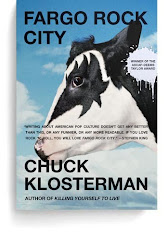It is planting time around most of the Canada and for the many who have decided to plant a garden and grow their own veggies this summer I say! GOOD JOB!
For those of us without a plot of our own (or a sunny patio box) there is always the farmers market. I think we all know we should be buying locally grown fresh produce straight from the farmer. But with supermarkets that lack seasons we conveniently reach for those out of season shipped in fruits and veggies even in the summer. I though I was being so savvy a couple of years ago because I was buying local produce when it was available at the grocery store. Well it turns out that buying from the farmer is a better way. Did you know that last season (09) local apple growers in BC sold their apples to the distributor for 12 cents per pound. I bet you paid around a dollar a pound at the grocery store for that same apple. I drove up to the apple orchard and bought my apples fresh picked for 20 cents per pound and skipped the grocery store all together. The grower made more money and I saved money (seems like crazy math but cutting out the middle man = profits for farmers and savings for people like you).
There are thousands of good reasons to buy local food for a ton of them you can go to Food Routes and check out their well put together website about the importance of buying local.
My personal reasons are simple, it tastes amazing, it is fun to meet the people who grew your squash, and it is CHEAPER than the grocery store. Plus a lot of the food at farmers markets has not been sprayed with pesticides or waxes just ask them if they sprayed it and they will tell you.
Living in BC I am fortunate to have access to some pretty decent farms and farmers markets. To find a farmers market close to your house you can use google maps just search farmers market, your city name here .
Knowing where to buy is only half the battle. Locally grown food is only available when it is in season. The produce is always the best price when it is most plentiful so if you are planning to make roasted Roma tomatoes and freeze enough for the winter (and you should they are awesome) you should buy them when the farmer has way to many coming ripe at the same time (best bet around here is late July - ask your local growers for your best bet).
Why not take the time this year to can, freeze, and preserve the taste of summer and keep more of your money in your pocket all winter long! Here are some websites that can give you a refresher or get you started. 4 ways to preserve Canning freezing vegetables Salsa, Chutney, Pickles, and Relish
If you are making baby food and buying organic produce your bills will be just as high as buying it in a jar! But if you go to you local farmers market and ask your favorite vender about their farming practices you will probably find they are a no spray environmentally friendly and non-toxic farm - although they may not have filled the miles of paperwork to become certified organic. Tell them you are making baby food and buy your veggies in bulk for an even bigger discount. Most veggies (squash, potatoes, carrots, peas, spinach, lentils, beets) can be roasted or steamed, pureed (in blender or food processor) , and frozen in icecube trays and stored in freezer bags for 6 - 12 months. You just have to heat and serve. check out these page for helpful baby food recipes. Wholesome Baby Homemade baby food This way you know your baby is getting healthy food without added salt, sugar or preservatives! Plus you are cutting back on waste buy not buying all those plastic or glass jars of food (3 a day for a year really adds up).
Here is a quick list of the harvest seasons for some of the yummy local produce in BC.
BC Locally Grown Foods and Approximate Harvest Dates
Asparagus April - June (mid)
Herbs April - October
Greenhouse tomatoes May - July
Peas May (late) -July
Lettuce May (late) - September
Rhubarb May (late) - July
Strawberries June - July
Radishes June - September
Tomatoes June - October
Broccoli June - September
Cherries July
Blackberries July - August
Blueberries July - August
Apricots July (mid) - August (early)
Raspberries July - October
Summer Squashes July - September
Cucumbers July - September
Garlic July - October
Beans July - October
Beets July - September
Peppers July (late) - September (late)
Peaches July (late)- August (late)
Figs July (late) - September
Hot Peppers August (early) - September (late)
Cantaloupe August (early) - October
Sweet Corn August - September
Watermelon August - September
Prunes/Plums August (mid)- September (early)
Pears August (mid)– October (early)
Apples August (mid) - October (late)
Winter Squash August (late) - October
Pumpkins September -October
Grapes September - October



